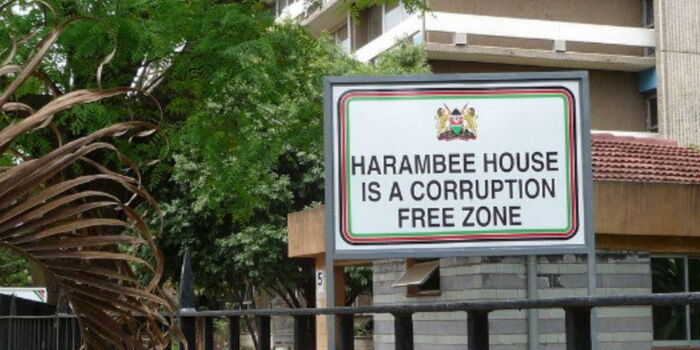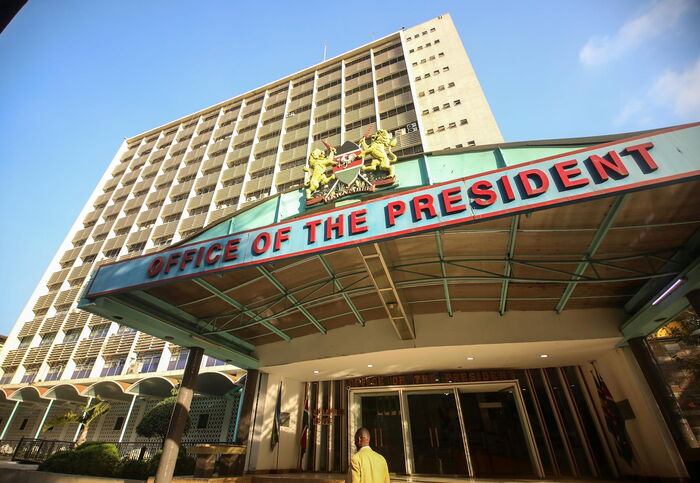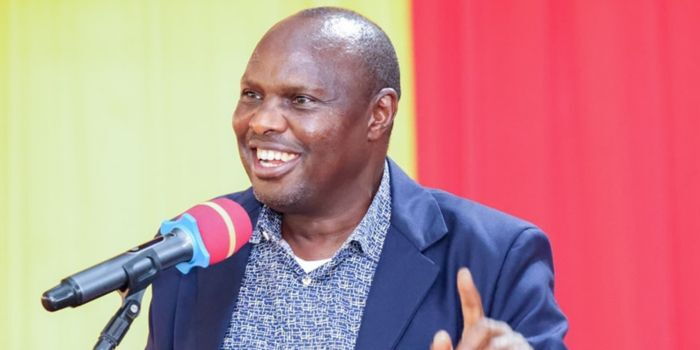There is growing drama and public outcry at Harambee House, Nairobi, where a longtime government employee has refused to obey a relocation order. The civil servant, Phyllis Anyango Ouko, has worked in the Office of the President for more than 20 years.
Now, she is protesting a forced move from her current office on the first floor to the eighth floor, an order she says puts her life at risk.
Ms. Ouko, an administration secretary who uses a wheelchair, says the move is not only unfair but also dangerous. She believes that the relocation decision ignores her disability and creates unnecessary hardship.
In a bold act of resistance, Ms. Ouko has spent three nights locked inside her office, refusing to leave. She says this is the only way to stop the authorities from demolishing her space while she is gone.
“All my things, including documents, are in here,” she told Citizen TV. “I can’t go outside because I am being tracked like a rat. The moment I step out, they will bring it down.”
She believes that the renovations on the first floor are an excuse to remove her. She alleges that the head of state wants the entire floor, including her office, and that her removal has nothing to do with genuine accessibility or operational needs.
Ms. Ouko’s concerns are more than emotional, they are practical. The eighth floor, where she is supposed to move, depends entirely on elevators for access. She fears that a power outage or elevator malfunction would leave her trapped.
“I’ve asked them what safety measures are in place if the elevator fails,” she said, “but no one has given me a real answer.”
She claims that there are better, safer office spaces available, spaces closer to the ground floor that would not put her in danger. Yet none of her suggestions, she says, have been considered by senior officials, including Chief of Staff Felix Koskei.
Her emotional appeal reflects years of struggle. “I’m here to speak out. Nobody is listening. Nobody is fighting for me,” she said. “I have faced so many challenges to reach where I am. This is not the way to treat someone who has served the country this long.”
Ms. Ouko is now pleading with Mr. Koskei to review the decision. She wants her concerns taken seriously and her voice heard.
Her stand brings into focus the Disability Policy & Guidelines for the Public Service, which clearly states: “Every public service institution shall, in deploying public officers, take due care to ensure that the duty station, workstation, and work environment are conducive to public officers with disabilities.”
The same policy also insists that emergency safety measures must be put in place, ensuring that persons with disabilities can evacuate safely in case of a crisis.
By staying locked in her office, Ms. Ouko is not only protecting her space, she’s also making a powerful statement about dignity, accessibility, and inclusion.
The story has sparked online debate, with Kenyans on social media expressing both outrage and support. Many have called for immediate intervention from higher authorities, demanding that the Office of the President respect its own policies and the rights of all workers.
According to reports, the renovations that are pushing Ms. Ouko out are part of earlier suggestions made by former Deputy President Rigathi Gachagua. These suggestions were meant to improve offices at Harambee Annex, Karen, and Mombasa, but not at the expense of employees’ safety or rights.
As of now, Ms. Ouko remains firm in her stand. For her, this is about more than just an office, it’s about respect, safety, and the right to work without fear.
Her case serves as a mirror to how disability is still misunderstood in many Kenyan workplaces. It is a test of whether government policies on inclusion are more than just words on paper.
If Ms. Ouko’s concerns continue to be ignored, her protest may become a symbol of something bigger: a broken system that still fails to treat all citizens equally.
This story is still unfolding. But one thing is clear: the fight for accessibility and dignity in public service is far from over.






